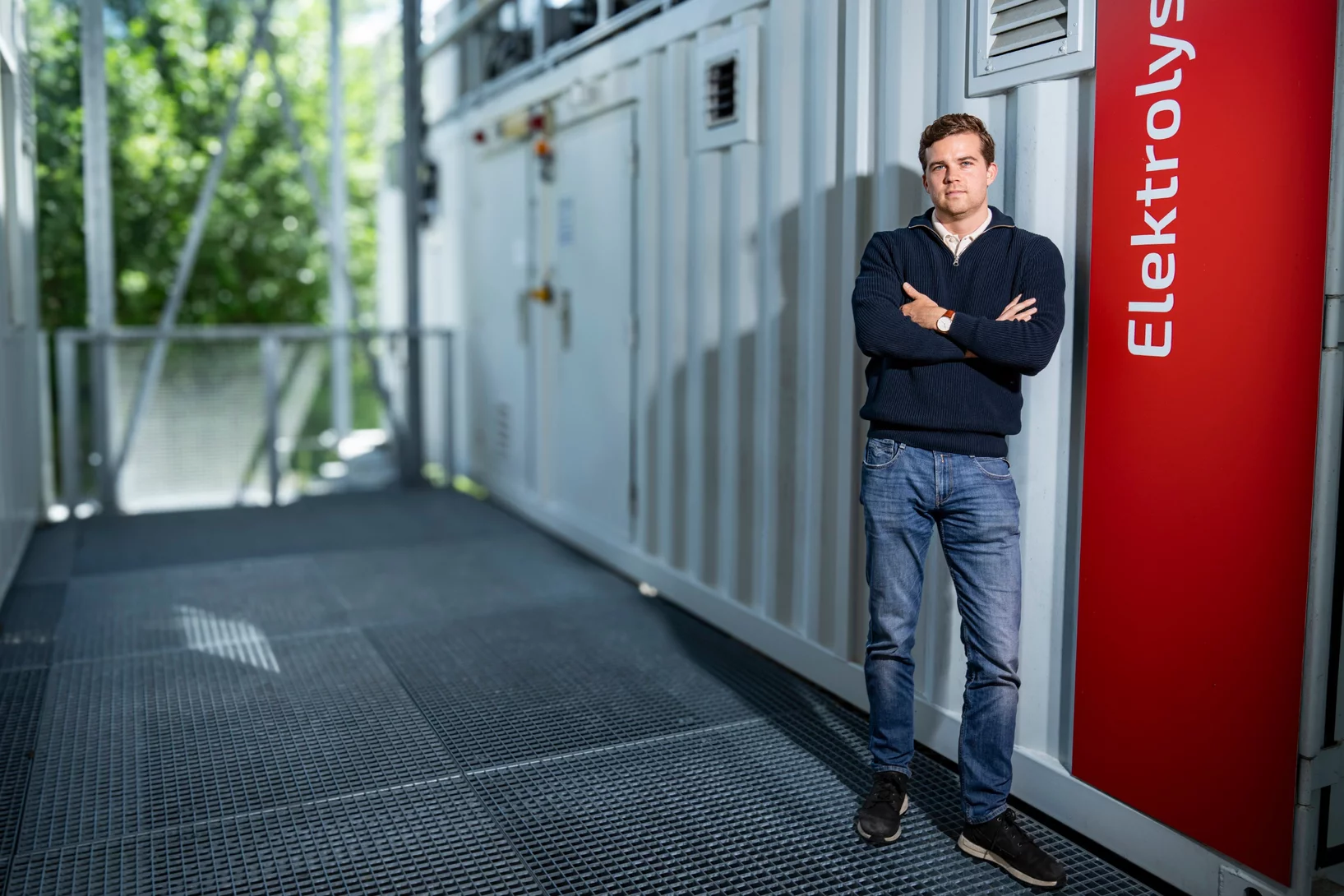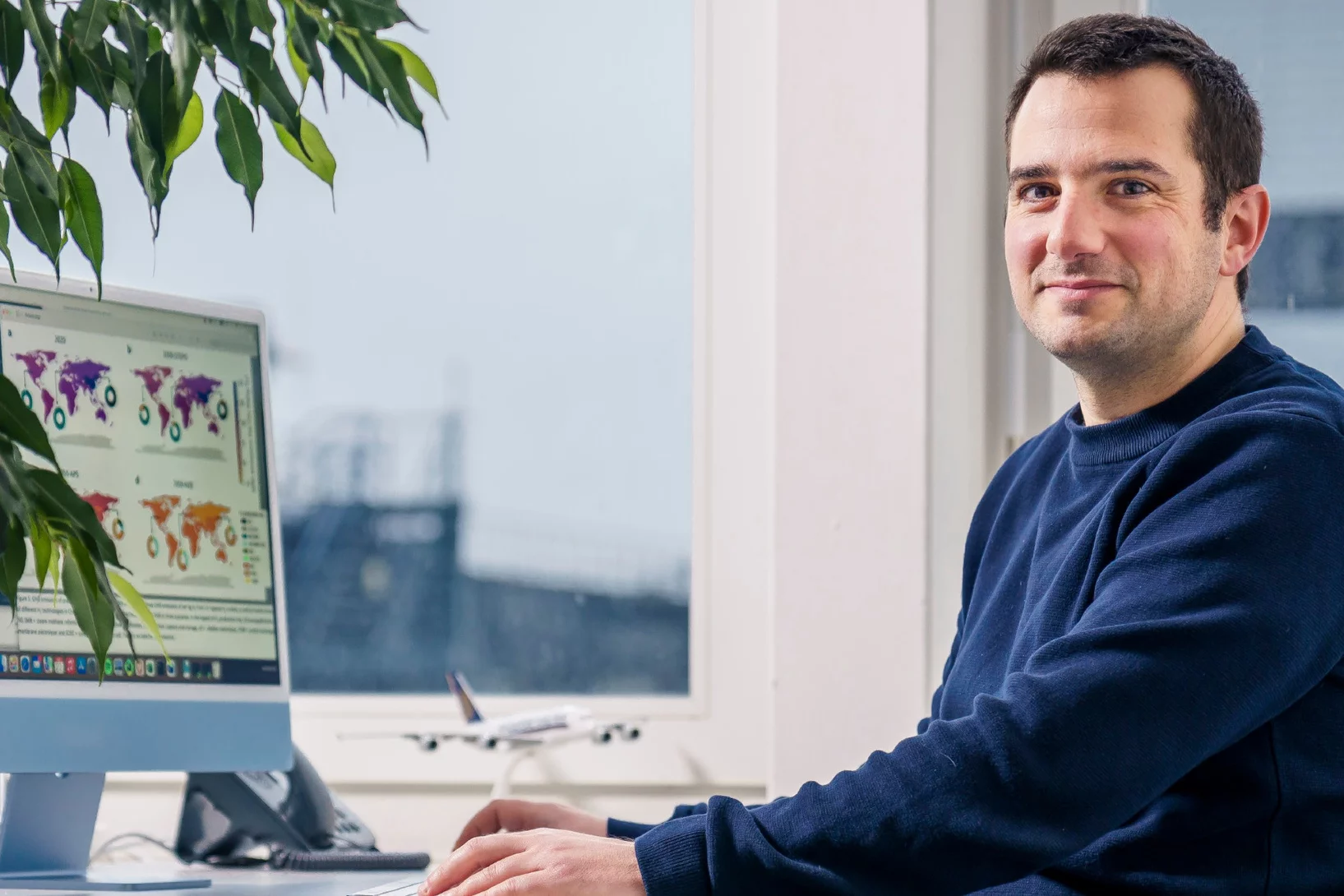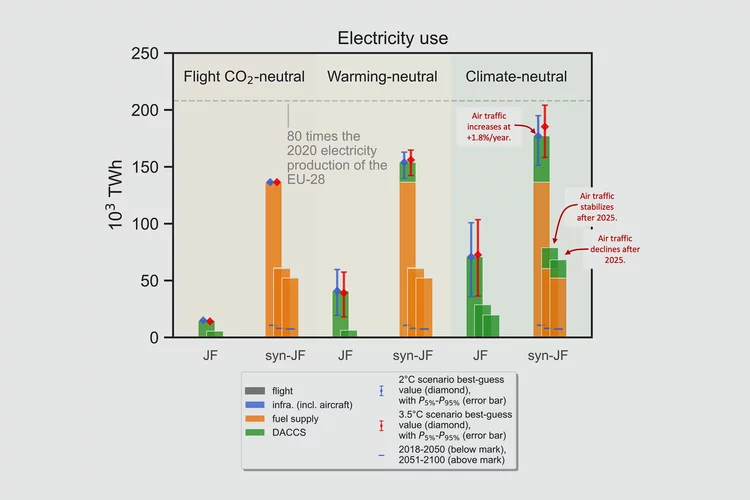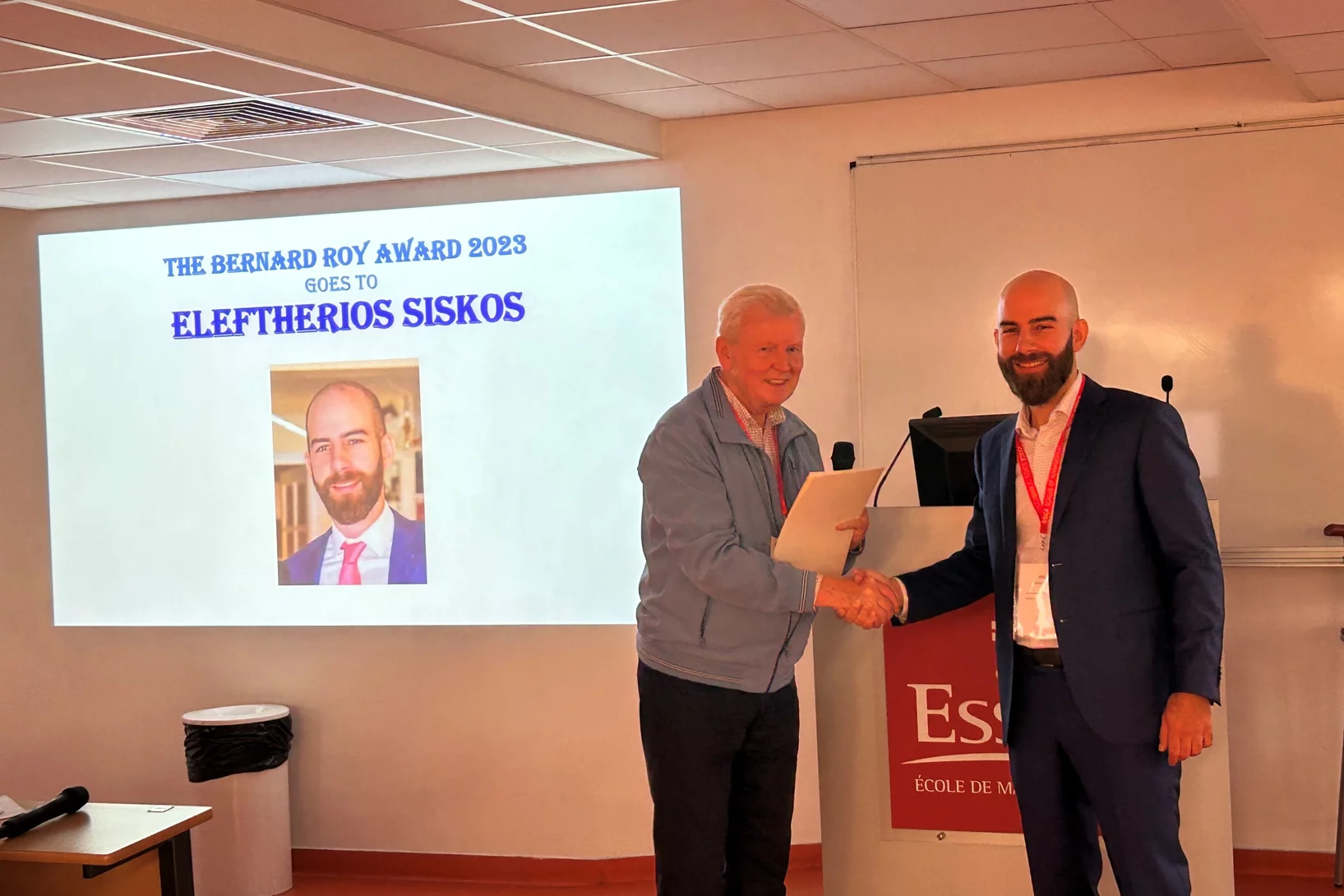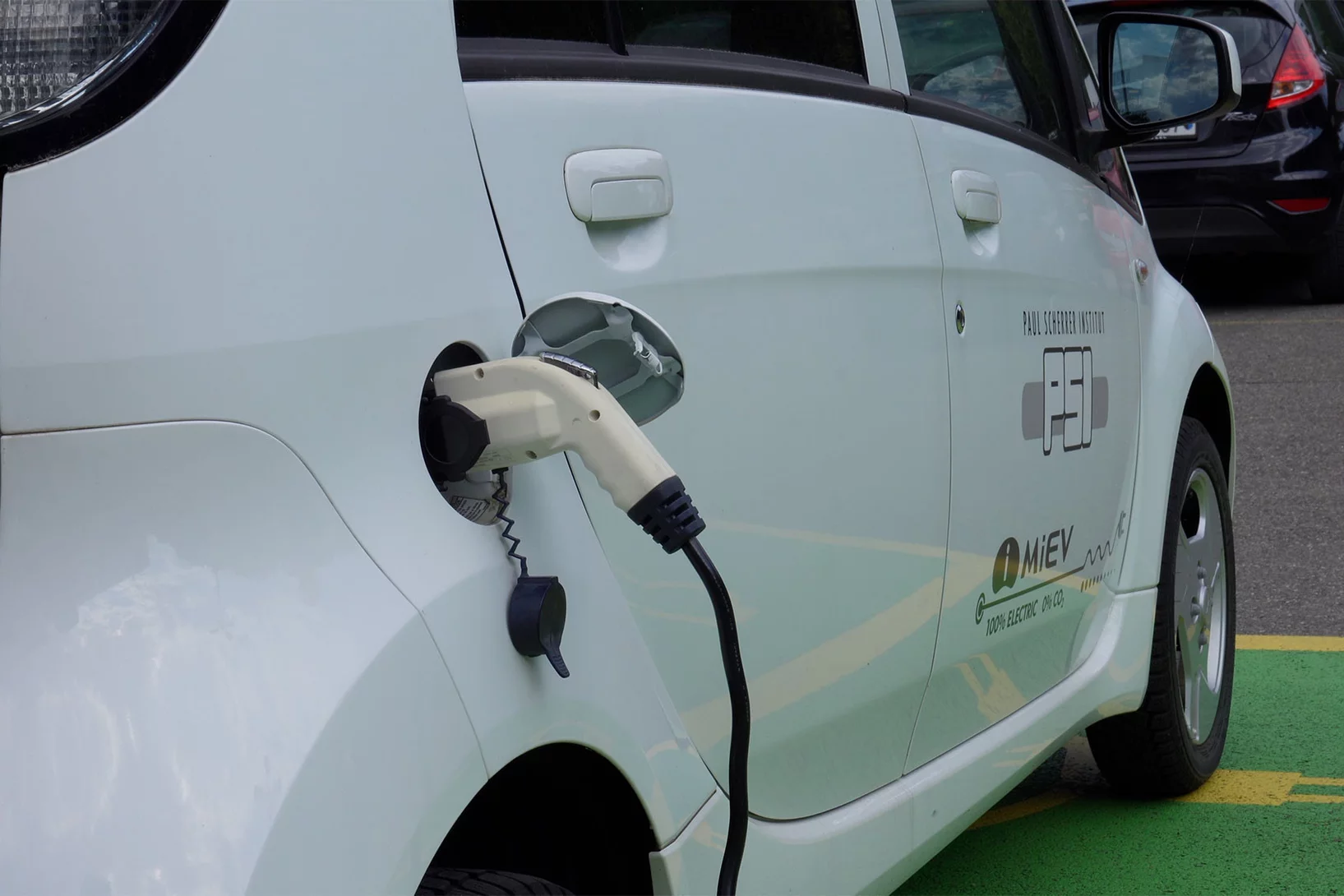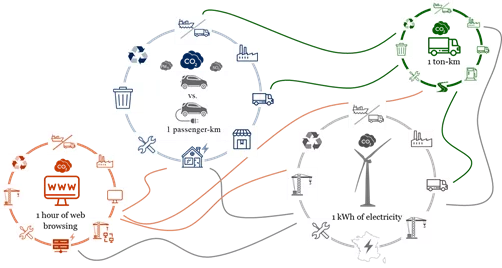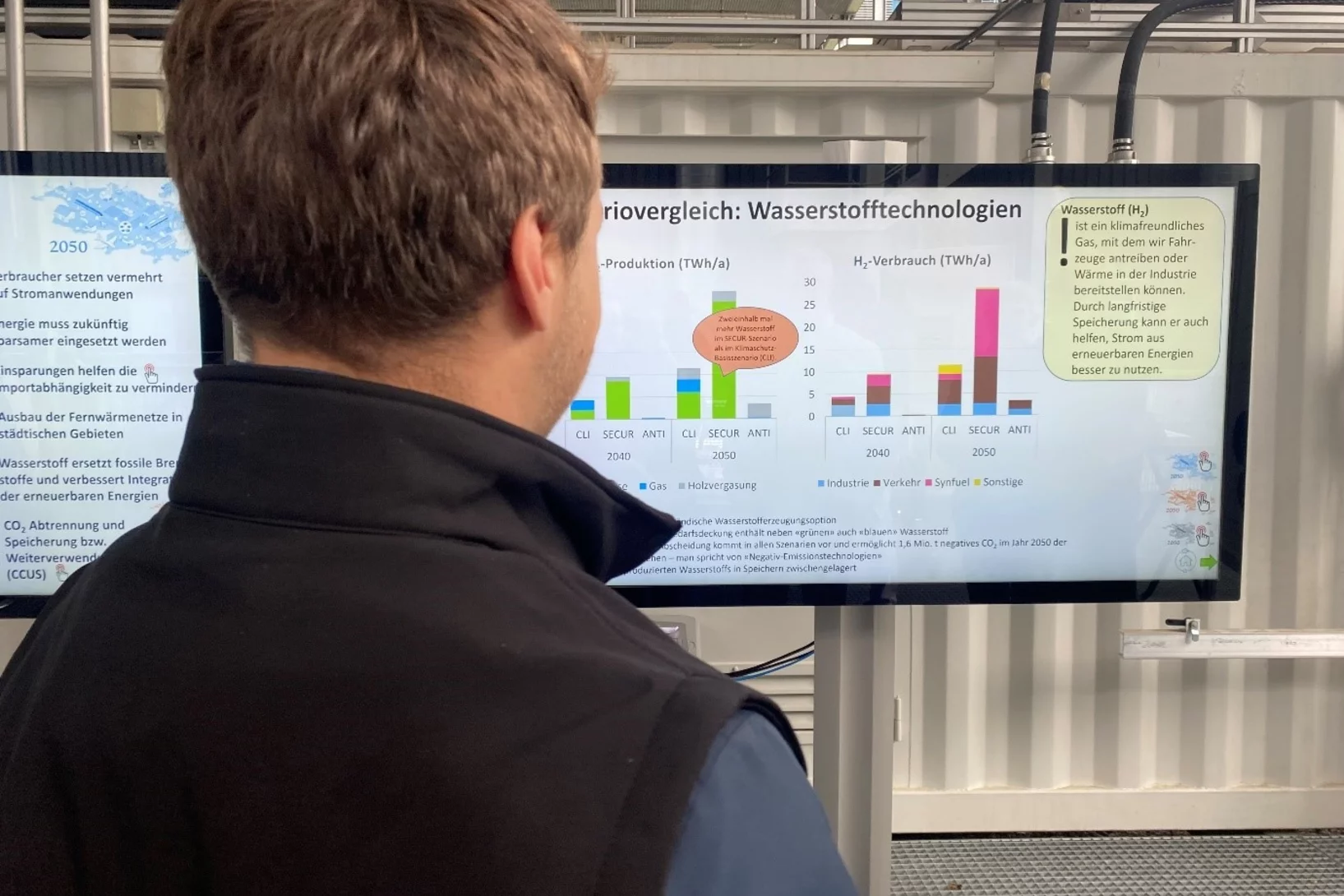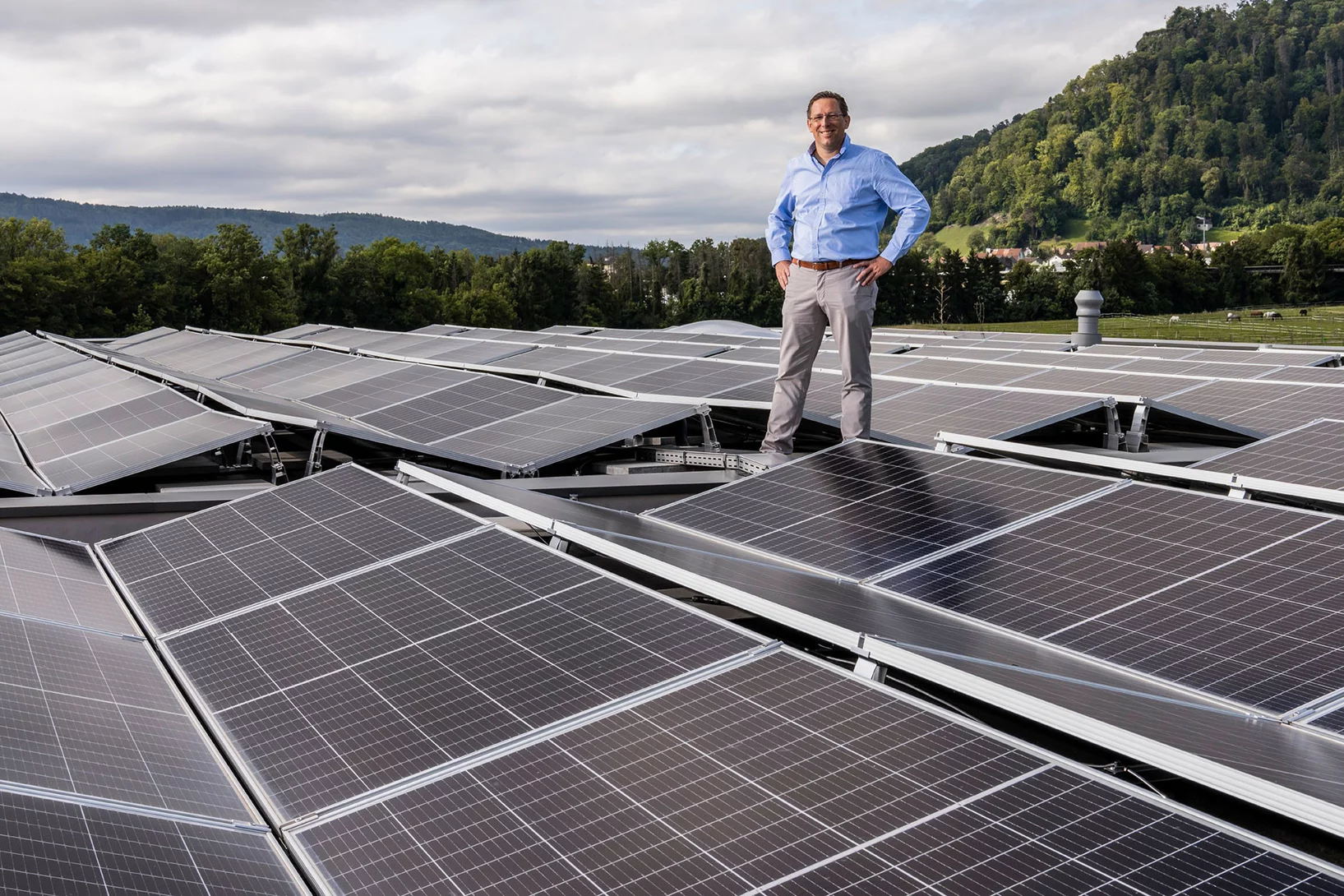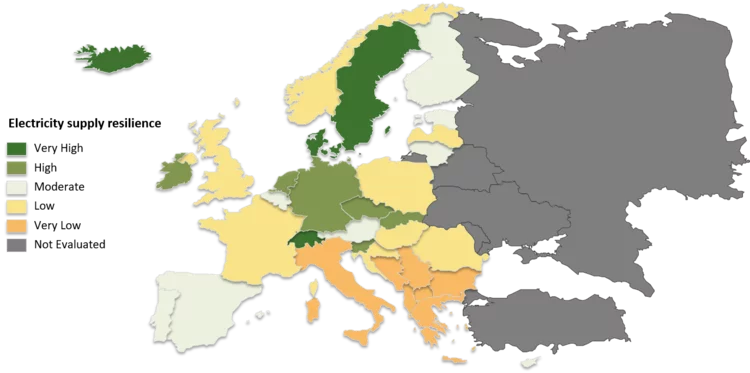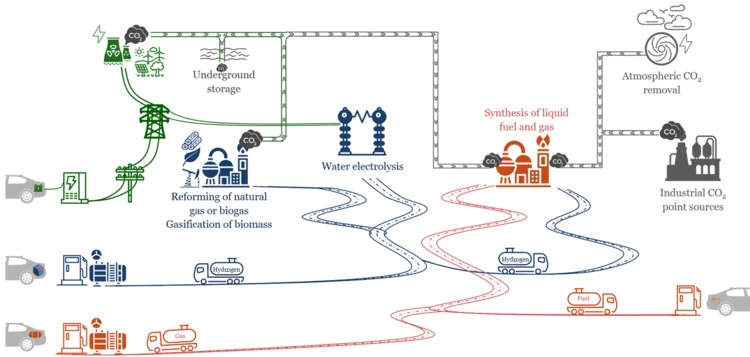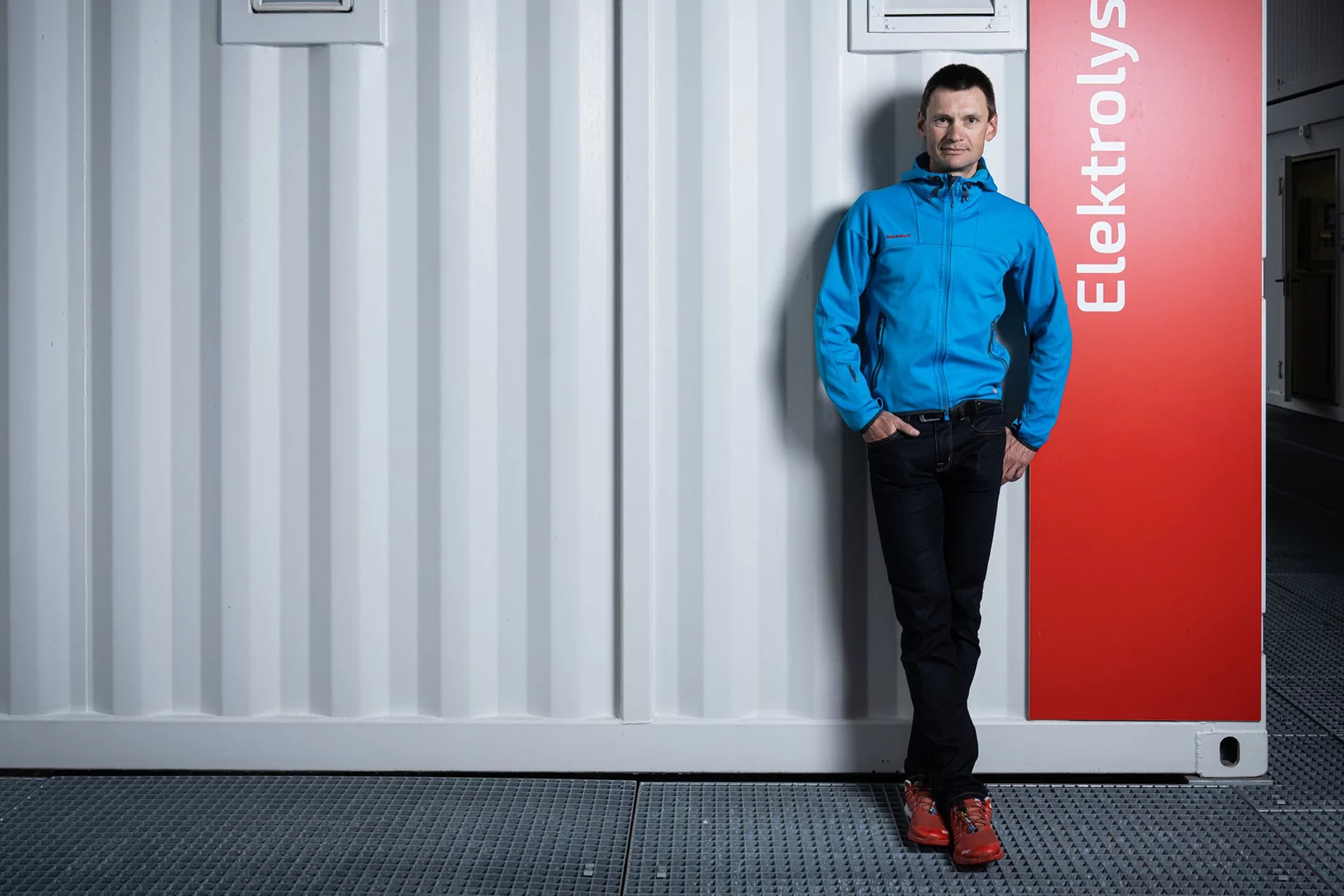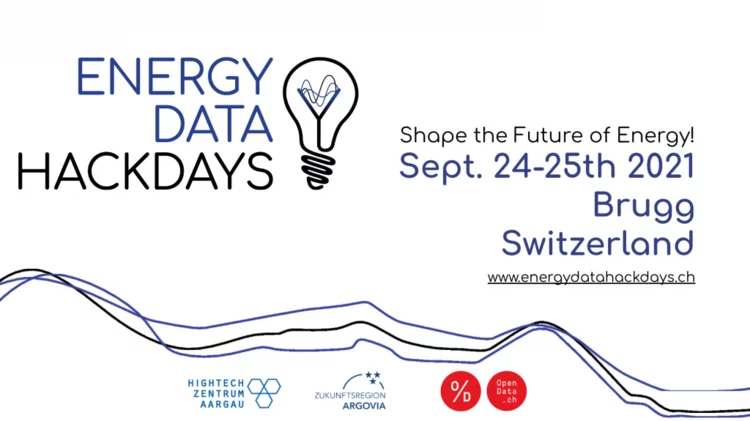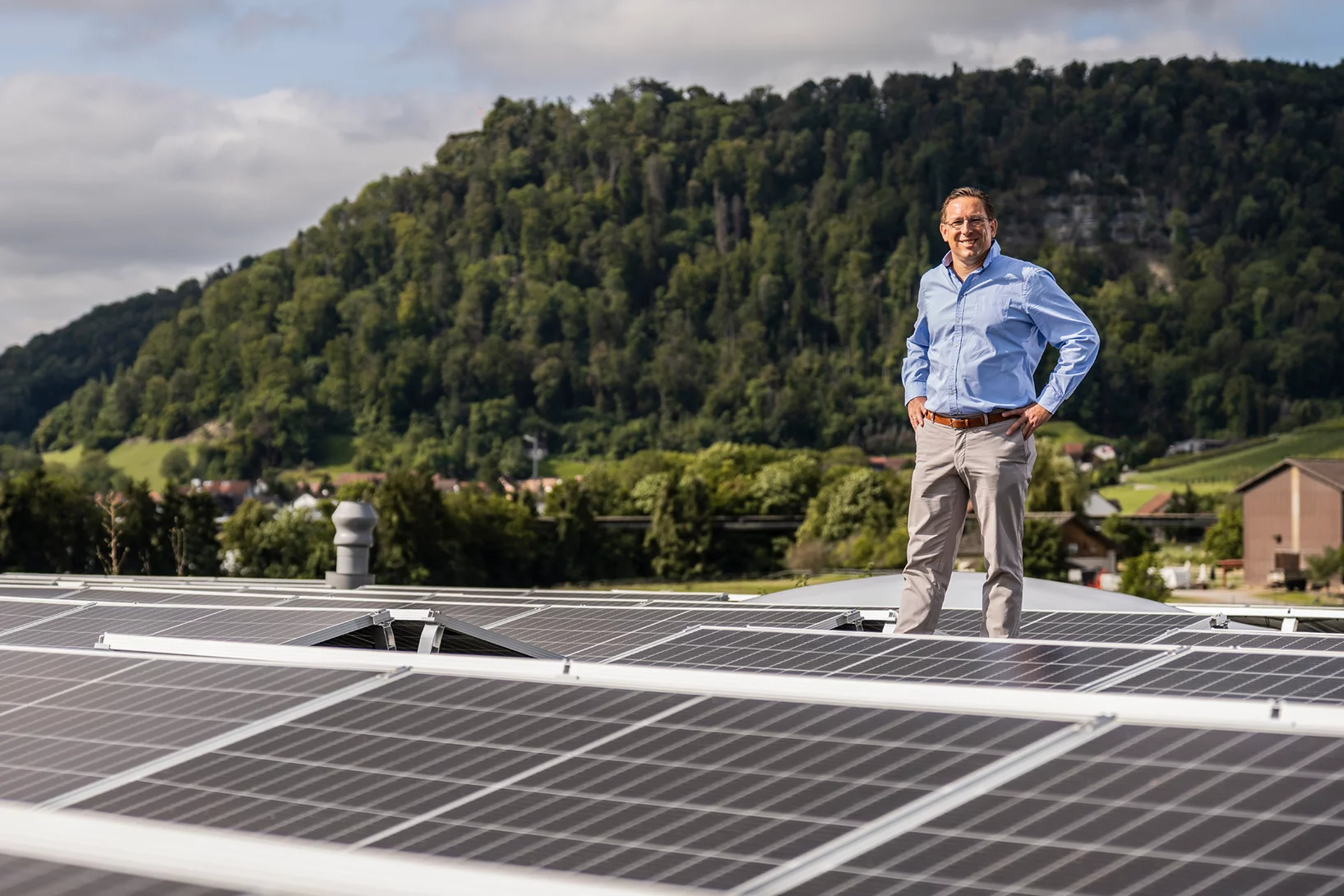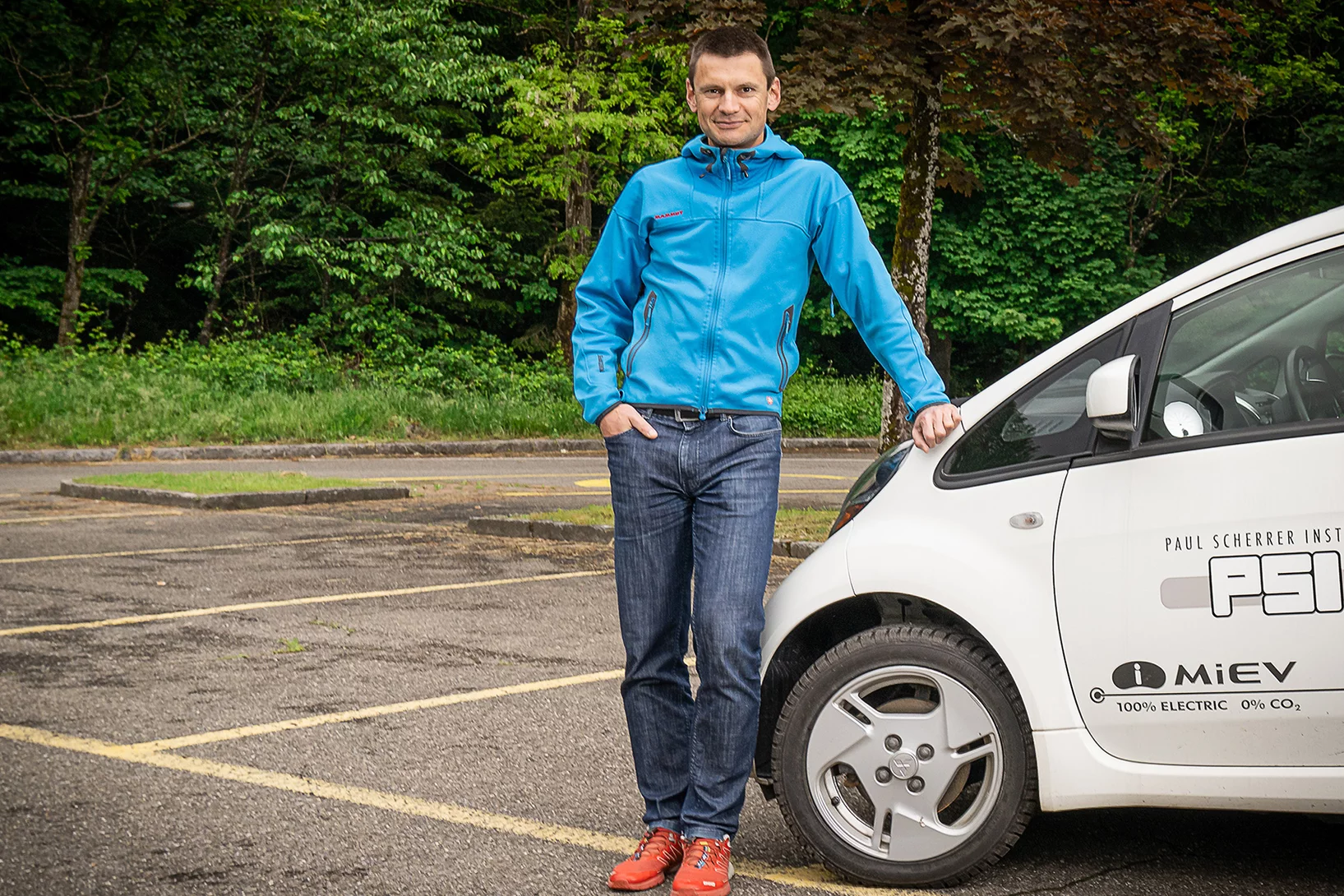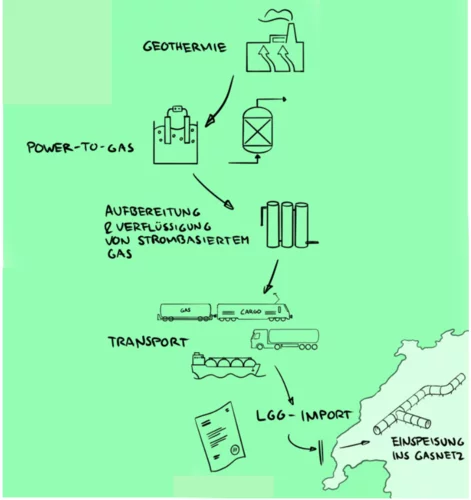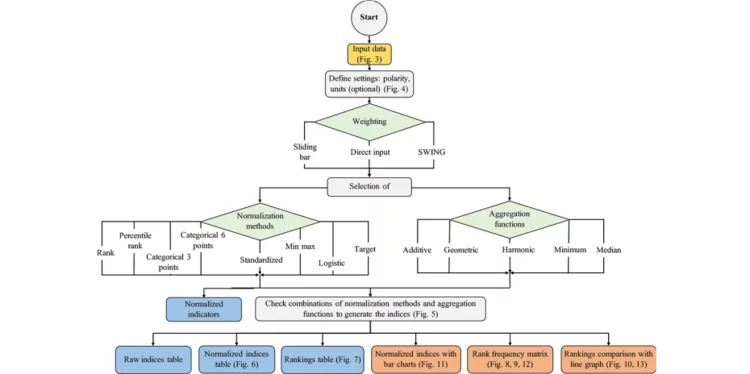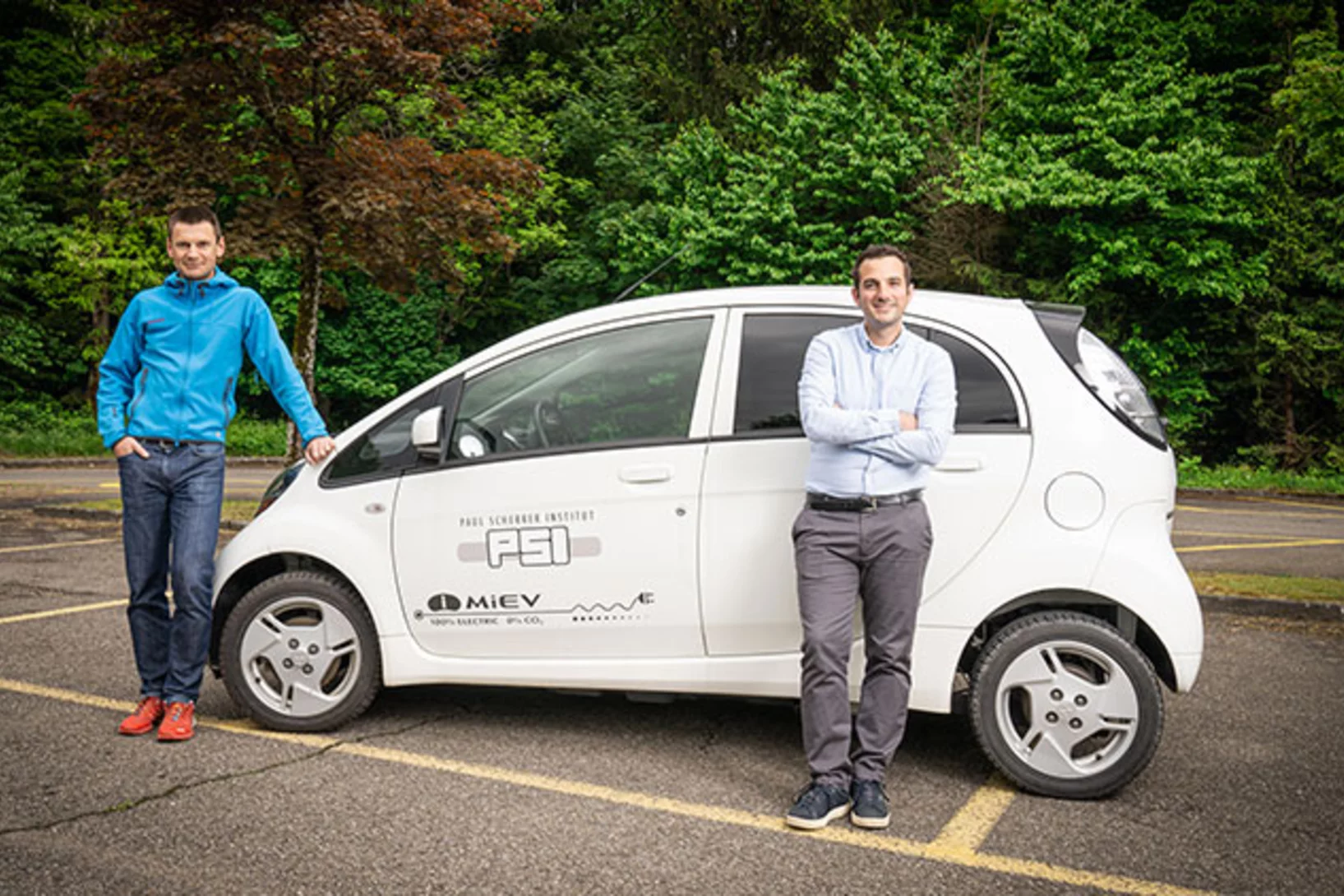Decarbonizing Building Construction
The buildings we live and work in are changing – becoming smarter, more efficient, and powered by cleaner energy. But while we’ve made strides in reducing operational emissions, there’s a hidden carbon footprint that remains largely overlooked: the emissions locked into the materials themselves.
Une promesse complexe
Une aviation climatiquement neutre n’implique pas seulement de réduire les émissions des vols. Une étude du PSI analyse ce qui sera nécessaire pour atteindre cet objectif à long terme.
Aussi rapide qu’un avion et aussi propre qu’un train
Dans le cadre d’une collaboration suisse, des scientifiques ont analysé l’impact environnemental potentiel du concept Hyperloop.
Où doit être produit l’hydrogène à l’avenir?
Des scientifiques du PSI ont étudié où l’hydrogène devait être produit pour une future économie de l’hydrogène et quelles étaient les conséquences de cet agent énergétique pour l’environnement.
Hydrogène: suffisamment propre pour le tournant énergétique?
L’hydrogène peut jouer un rôle déterminant dans la transition vers un système énergétique zéro net. Mais pour ce faire, il doit être produit correctement.
Climate-neutral aviation: will it fly?
The European aviation sector stands at a pivotal juncture in its quest to achieve net-zero climate impacts. Focusing on flight CO2 emissions overlooks up to 80% of the sector's climate repercussions.
Our research delves deep into the role of electricity-based synthetic jet fuels and direct air carbon capture and storage (DACCS) as potential game-changers. These solutions promise climate-neutral aviation, but there's a catch: the relentless rise in air traffic. Relying solely on renewables-derived synthetic fuels may strain both economic and natural resources. On the flip side, offsetting fossil jet fuel impacts via DACCS poses its own set of challenges. Our findings underscore one clear message: for a genuinely climate-neutral European aviation, we must reconsider the scale of air traffic.
Dr. Eleftherios Siskos is the recipient of the Bernard Roy Award 2023
Dr. Eleftherios Siskos has received the prestigious Bernard Roy Award 2023 by the European Working Group (EWG) on Multiple Criteria Decision Aiding (MCDA).
Comment réduire la quantité de cobalt dans les batteries des voitures électriques?
L'électrification des transports est en augmentation. Cela signifie que davantage de batteries sont nécessaires. Cependant, certaines d'entre elles contiennent une matière première extrêmement problématique : le cobalt. Le PSI recherche des alternatives.
L’avion climatiquement neutre: est-ce possible?
Pour atteindre cet objectif, il faudra avant tout disposer de carburants durables et réduire le trafic aérien.
Latest Version of "Mobiltool" Released
How do you get from A to B in the most environmentally friendly way? This question can now be answered quite easily with the latest version of the "mobitool". Read the article to learn more.
Our Group at the PSI Open Doors Event 2022: Discovering Energy Systems Modelling and Sustainability
On Sunday, 23rd of October, the Paul Scherrer Institute opened its doors and invited the public to explore and experience the manyfold topics which are researched at PSI. The Laboratory for Energy Systems Analysis was present at two stations. Read the article to learn more.
Pénurie d’énergie et blackout: répétition générale
Peter Burgherr analyse les risques à l’institut Paul Scherrer. Dans cette interview, il évoque la possibilité qu’une pénurie d’électricité se produise cet hiver et explique comment se préparer.
Evaluation of European electricity supply resilience
The increasing risk of extended electricity supply disruptions and severe electricity price fluctuations strongly motivate an evaluation of electricity supply resilience. In this direction, this research proposes a multicriteria decision support framework to assess resilience at a country level, based on three major dimensions: Resist, Restabilize and Recover. In total, 35 European countries are ranked according to their performance on 17 indicators, through a synergy of MCDA methods, techniques and communication protocols. The assessment framework has been extended to incorporate the Choquet Integral method, in order to accommodate potentially interacting pairs of criteria and negate their arbitrary effects on the final evaluation results. The analysis incorporates country data from credible international databases, as well as the preference information of a European energy expert. The results are envisaged to support energy policymakers in Europe and provide guidelines and areas for improvement at a country level.
E-fuels and electrification as complementary approaches to achieve climate target
Sustainable, synthetic fuels, so-called e-fuels, can help reduce CO₂ emissions. For their production, electricity from renewable sources is required in order to allow for a close to CO₂-neutral balance. The availability of electricity from renewable sources, which ensures the climate benefits of e-fuels, is currently still limited. “Especially in order to produce on a larger scale, a lot of renewable electricity is needed,” explains Christian Bauer, researcher at the Laboratory for Energy Systems Analysis (LEA) at PSI.
De l’hydrogène bleu peut protéger le climat
La clé: éviter les fuites.
Challenge at the Energy Data Hackdays 2021
Chris Mutel, a scientist at PSI's Laboratory for Energy Systems Analysis who specialises in life cycle and sustainability analyses, prepared a challenge for the Energy Data Hackdays happening on the 24th and 25th of September 2021 in Brugg
D'où viendra l'électricité en 2050?
L'objectif de zéro émission nette de CO2 est techniquement réalisable.
Retirer efficacement du CO2 de l’atmosphère
S’il est minutieusement planifié, le captage du CO2 représente une possibilité technique efficace.
Christian Bauer interviewed on Electric Cars at the program Einstein by SRF
Christian Bauer, a scientist at PSI's Laboratory for Energy Systems Analysis who specialises in life cycle and sustainability analyses, interviewed at the program Einstein by SRF on Electric Cars
Christian Bauer interviewed on Electric Cars at the program Treffpunkt by SRF
SRF interviewed Christian Bauer, a scientist at PSI's Laboratory for Energy Systems Analysis who specialises in life cycle and sustainability analyses, on Electric Cars
Final Report of the IMPEGA project
The final report of the IMPEGA project has been released!
SCCER Mobility White Paper
New SCCER Mobility white paper on "Pathways to a net zero CO2 Swiss mobility system" is now online!
SWEET Program, Research challenge 4: Sustainability at the heart of a resilient Swiss energy system
The results have been announced of the first call for proposals in the new energy research programme SWEET (Swiss Energy Research for the Energy Transition). An international panel of experts has awarded the contract to four consortia. The host institutions of these research consortia are ETHZ, EPFL, the University of Geneva and the PSI. Over the next six to eight years, they will work on their research tasks in trans- and interdisciplinary projects.
Christian Bauer interviewed on Electric Mobility at the Kassensturz program by SRF
SRF interviewed Christian Bauer, a scientist at PSI's Laboratory for Energy Systems Analysis who specialises in life cycle and sustainability analyses, on Electric Mobility at the program Kassensturz
TCS Switzerland Passenger Cars platform extended with Life Cycle Carbon footprint from PSI-TA
TCS Switzerland has extended its passenger car search and comparison platform by adding the life cycle carbon footprint quantified by PSI-TA.
Seven years SCCER Mobility
Synthesis book reviews history, milestones and achievements of the center
Sustainability Assessment of Potential Areas for Deep Geothermal Energy Systems in Switzerland
In this study, scientists from the Paul Scherrer Institute (PSI) assessed the suitability of potential areas for Deep Geothermal Energy (DGE) systems in Switzerland with regard to their sustainability.
Atelier deliverable nr. D9.1 Draft released
Draft of the Deliverable nr. D9.1 on "Repository of Definitions of terms, key characteristics archetypes and a set of KPIS" for the H2020 Atelier project
A tool to build and assess indices
Researchers from the Future Resilient Systems programme present a multiple criteria decision analysis (MCDA) software that supports the dynamic shaping and evaluation of indices.
Bilan écologique des voitures: un nouvel outil web pour aider les particuliers et les chercheurs
Aide à la décision lors de l’achat d’un véhicule: des chercheurs de l’Institut Paul Scherrer ont développé un outil web baptisé Carculator qui permet de comparer en détail le bilan écologique des voitures.




